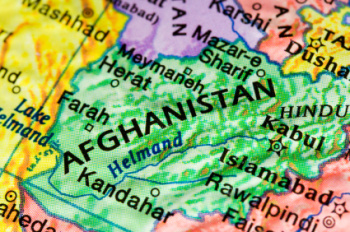The vote count for Afghanistan’s presidential election is now about half way through and Abdullah Abdullah’s lead is growing, at a strong 44.4% compared to runner-up Ashraf Ghani’s 33.2%.
 While that’s good news for Abdullah, his lead is not expected to get him over the 50 percent threshold, which means he and Ghani are still heading for a runoff vote some time in late May.
While that’s good news for Abdullah, his lead is not expected to get him over the 50 percent threshold, which means he and Ghani are still heading for a runoff vote some time in late May.
The politics of a run-off in the Afghan system change the strategy quite a bit, and Abdullah and Ghani, rather than running a second public campaign, are likely to focus primarily on winning endorsements from the six candidates that didn’t make it to the runoff, hoping their voters will follow the endorsement.
Of course, all of this coalition-building as a run-off tactic remains hypothetical, as Afghanistan has never seen a proper runoff. President Hamid Karzai won the first (heavily disputed) vote without a runoff, and while Abdullah and Karzai were set for a runoff in 2009’s (even more heavily disputed) vote, Abdullah withdrew before the vote, citing Karzai’s refusal to enact reforms to prevent fraud.


